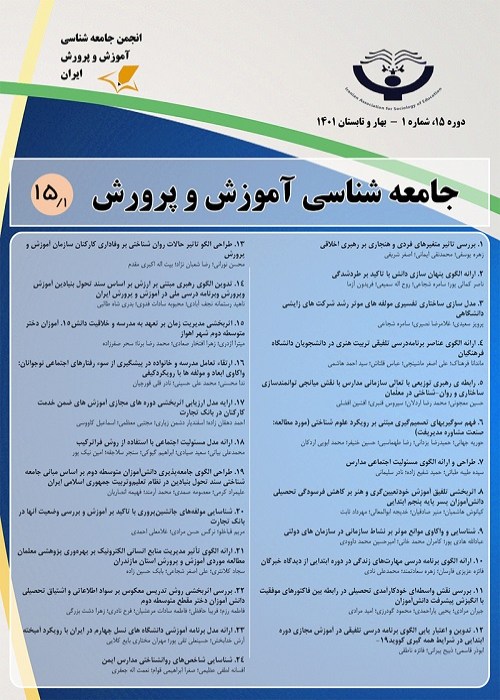Identifying the Dimensions and Components of Self-Leadership in Faculty Members with an Islamic Approach
Self-leadership plays an important and effective role in improving the performance of faculty members. Therefore, the current research was conducted with the aim of identifying the dimensions and components of self-leadership in faculty members with an Islamic approach.
This study in terms of purpose was applied and in terms of implementation method was qualitative. The research population was the faculty members of Azad and Governmental universities of Karaj city. The research sample according to the principle of theoretical saturation was calculated 12 people who were selected by purposive sampling method. The research tool was a semi-structured interview with 11 questions, which the interviews were conducted individually and its validity was confirmed by the triangulation method and its reliability was calculated by the agreement coefficient method between two coders 0.86. Data were analyzed by open, axial and selective coding method in MAXQDA software.
The findings showed that self-leadership in faculty members with an Islamic approach had 53 open codes or indicator, 14 axial codes or component, and 8 selective codes or dimension. The dimensions of self-leadership in faculty members with an Islamic approach were included personal development (with two components of self-management and self-guidance), professional development (with two components of professional strategy and professional and social skills), ethics (with three components of professional ethics, relational ethics and critical thinking skills) ), performance improvement (with two components of effectiveness and efficiency), transformational (with two components of behavior-oriented strategy and self-motivation), program-oriented (with one component of purposeful), self-awareness (with one component of recognizing own motivation and behavior) and corrective and synergistic (with one components of self-monitoring and self-control. Finally, for self-leadership in faculty members with an Islamic approach were identified 29 sub-categories in 8 main categories including self-knowledge, self-motivation, self-control, effectiveness, goal-setting, reform and transformation, ethics and self-actualization.
According to the identified dimensions and components for self-leadership in faculty members with an Islamic approach to improve self-leadership in faculty members can be provide the ground for realizing the identified dimensions, components and categories.
- حق عضویت دریافتی صرف حمایت از نشریات عضو و نگهداری، تکمیل و توسعه مگیران میشود.
- پرداخت حق اشتراک و دانلود مقالات اجازه بازنشر آن در سایر رسانههای چاپی و دیجیتال را به کاربر نمیدهد.


